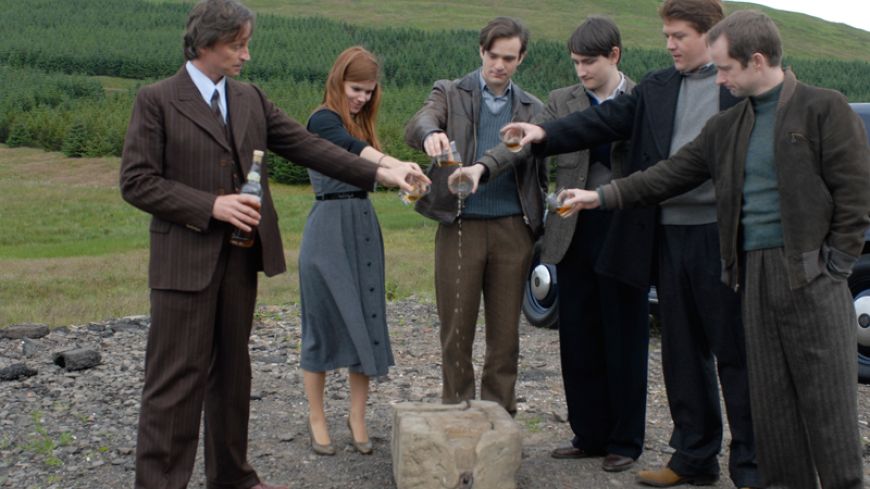
If you are wondering why a romantic drama set around a famous Welsh poet, not the most famous student prank in Scottish history, opened the Edinburgh Film Festival then today we got our answer.
Stone of Destiny is very mediocre.
To be honest, the expectations were low from the start. The film features some veteran Scottish actors - Robert Carlyle as nationalist academic John MacCormick and Peter Mullan as gruff middle class dad to our hero, Ian Hamilton (played by relative newcomer Charlie Cox). Rings trilogy star Billy Boyd is also here putting in a good, supporting role as a reluctant co-conspirator.
But the suspicion that a largely canadian production - writer-director Charles Martin Smith and much of his team are based in Vancouver, Canada - would have trouble getting under the skin of the Scottish nationalist psyche, is confirmed. It feels too much like an outsider looking in and comes off as a pretty-looking story, tugging a little too insistently at nationalist heart-strings.
There's no denying the symbolic importance that the Stone of Destiny has taken on for Scots. Also known as the Stone of Scone, this heavy slab of sandstone with its distinctive iron rings at each end, was thought to have been used as a pillow by the biblical Jacob.
Since around 847, Scottish monarchs were seated on the stone when they were crowned. But in 1296 it was pillaged by Edward I and removed to Westminster Abbey. Edward had a special Coronation chair built with a shelf underneath it for the Stone so that any English monarch would be crowned king of Scotland as well as England.
Then in 1950, Ian Hamilton and three other nationalists broke into Westminster Abbey and took the stone back to Scotland. The act was greeted with much glee and pride at getting one back on the "auld enemy".
The film, which is essentially a re-telling of Ian Hamilton's stone episode up until the point where it was eventually returned, looks beautiful with ravishing production values, but the story lacks depth and at times lacks direction. Nationalist sentiment is tricky to put into words and the painting-by-numbers script too often comes across as awkward and hollow.
Less forgiveable is that some of the writing is just plain clumsy. In the initial flirtatious meeting between Ian Hamilton and co-conspirator Kay Matheson (New York born Kate Mara) the dialogue seems painful and back to front, and elsewhere scenes are taken up with too much plot exposition.
On the positive side the rousing strains of Wild Mountain Tyme ("Will Ye Go Lassie Go...") are artfully arranged for harp and full orchestra, although I'm sure there will be criticisms of tweeness.
The film also succeeds in having its lump-in-the-throat moments such as when the media first report the story of the stolen stone and an intimate father and son scene between Ian Hamilton and his father. But these climactic moments would have been more powerful with a stronger script. The cast make the most of what they've got, although without setting the heather alight. Charles Martin Smith's drama wont stir nationalist fervour in the same way that a famous Australian director did with Braveheart.
As for the Stone of Destiny itself - I saw that yesterday in the honours room at Edinburgh Castle - although whether it was the real stone is now the subject of much academic debate. Even the Scottish First Minister, Alex Salmond, has weighed in with a reiteration of the suggestion that the monks of Scone Palace gave Edward I a dummy stone and kept the real thing themselves. Now there's the subject for a film.

